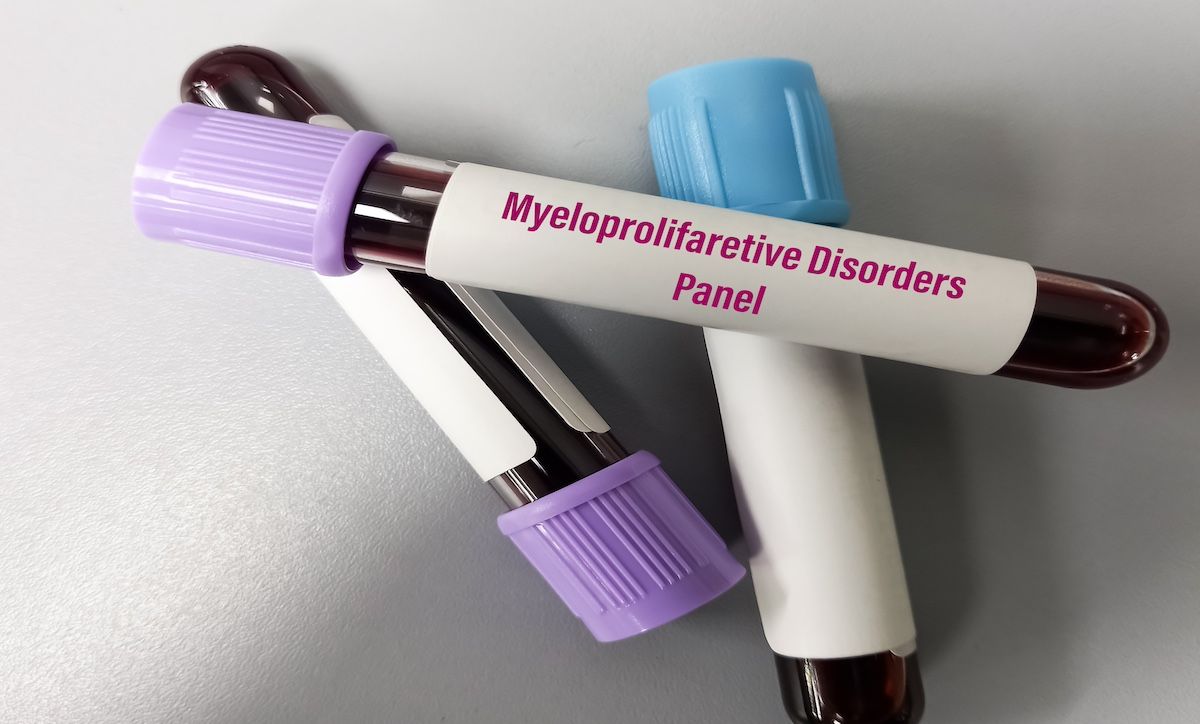- Center on Health Equity & Access
- Clinical
- Health Care Cost
- Health Care Delivery
- Insurance
- Policy
- Technology
- Value-Based Care
Multi-Hit TP53 Mutations Linked With Poor Outcomes in MPN, AML
Multi-hit TP53 mutations significantly worsened survival in patients with myeloproliferative neoplasms (MPNs) and acute myeloid leukemia (AML), revealing critical prognostic insights.
Multi-hit TP53 mutations have a similarly negative impact on survival outcomes in both myeloproliferative neoplasms (MPN) and acute myeloid leukemia (AML), according to a new analysis. The findings were published in an abstract from the 2025 American Society of Clinical Oncology annual meeting, held in Chicago, Illinois.1
Mutations of TP53 have long been associated with a poor prognosis in patients with AML, and multi-hit TP53 mutations have been linked with poor outcomes in myelodysplastic syndromes, explained Ayalew Tefferi, MD, of the Mayo Clinic, and colleagues.2 Recent evidence suggests multi-hit TP53 mutations also have prognostic relevance for MPN, the authors noted.
The new report compared the impact of multi-hit TP53 mutations in MPN and AML and also analyzed risk factors associated with the mutations.1 The authors turned to a Mayo Clinic database, where they identified 61 patients with MPN and multi-hit TP53 mutations and 81 patients with AML and multi-hit TP53 mutations. In the patients with MPN, 19 had chronic-phase disease, 14 had accelerated-phase disease, and 28 had blast-phase disease.
Multi-hit TP53 mutations are a significant negative prognostic factor for patients with both MPN and AML, the new study found. | Image credit: MdBabul - stock.adobe.com

The investigators noted several similarities and differences between the groups. They found that patients with blast-phase MPN were more likely to have concomitant ASXL1, EZH2, IDH1, and IDH2 mutations than patients in the AML group.
Survival outcomes were poor across the entire study population. At a median follow-up of 0.6 years, 87% of participants had died, and the remaining 13% had received allogeneic stem cell transplantations (ASCT). Patients with blast-phase or accelerated-phase MPNs had similar overall survival (OS) of 4.6 months and 5.6 months, respectively, following the detection of their TP53 mutations (P = .5).
As a group, patients with blast- or accelerated-phase MPN had a median OS of 4.8 months, while patients with AML had a median OS of 7.4 months, and those with chronic-phase MPN had a median OS of 11.6 months.
After adjusting for age, the investigators found several factors that were independently associated with OS. They included undergoing ASCT, having chronic-phase MPN, responding to pre-transplant therapy, and having concurrent TET2 or DNMT3A mutations.
The authors then used those findings to develop a risk model that classified patients into 3 tiers. Those without any of the identified risk factors had a median OS of 23.8 months. Patients with 1 risk factor had a median OS of 11.1 months. Those with 2 or more risk factors had a median OS of just 4 months. Most of the patients in the study (n = 80) fit into the high-risk category.
Next, Tefferi and colleagues analyzed the risk factors they identified within the 2 distinct disease groups. In patients with MPN, they confirmed that ASCT, response to pre-transplant therapy, and concurrent TET2 or DNMT3A mutations all impacted OS, with hazard ratios of 0.3 (P = .03), 0.4 (P < .01), and 5.0 (P < .01), respectively.
Among patients with accelerated- or blast-phase MPN, undergoing chemotherapy versus supportive care and achieving a response to pre-transplant therapy were both associated with OS ([HR, 0.1; P < .01] and [HR, 0.2; P < .01], respectively).
The investigators did not identify any significant risk factors for OS in patients with chronic MPN. In addition, the authors said multivariable analysis did not link ASCT with OS in any of the MPN types, though they said that may be due to a low number of cases in their data set.
Tefferi and colleagues concluded their findings show that multi-hit TP53 mutations are a significant negative prognostic factor for patients with both MPN and AML.
References
- Fathima S, Abdelmagid M, Alsugair A, et al. TP53 multi-hit mutations in 142 patients with MPN or AML: comparative analysis of survival and risk factors. Presented at: 2025 American Society of Clinical Oncology Annual Meeting; May 30-June 3, 2025; Chicago, Illinois. Abstract e18590.
- Puzo CJ, Hager KM, Rinder HM, Weinberg OK, Siddon AJ. Overall survival in TP53-mutated AML and MDS. Ann Hematol. 2024;103(12):5359-5369. doi:10.1007/s00277-024-06054-7
